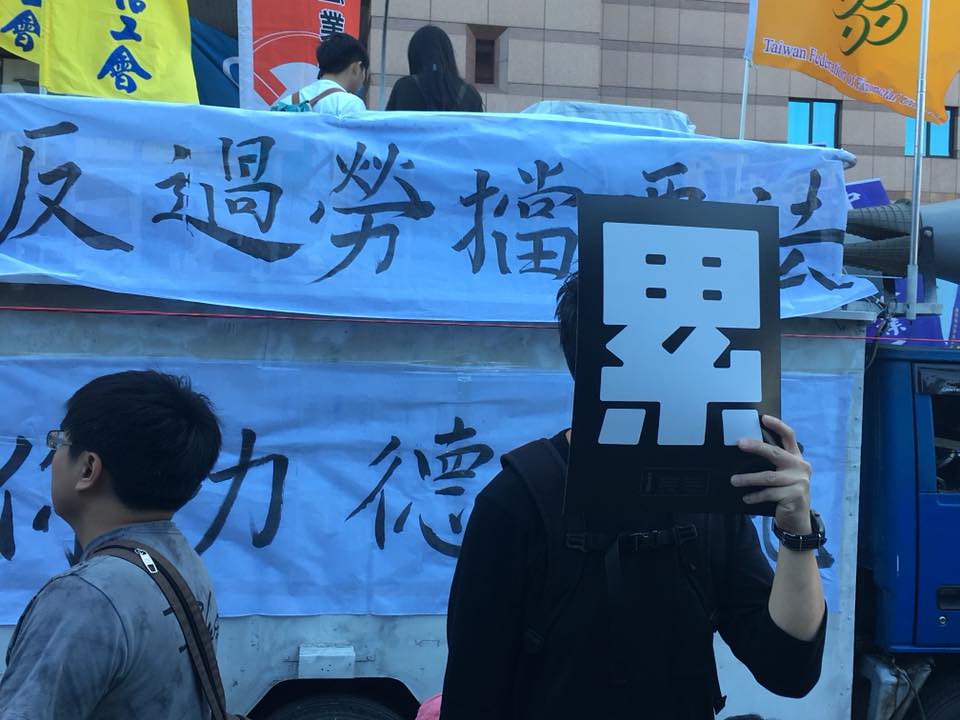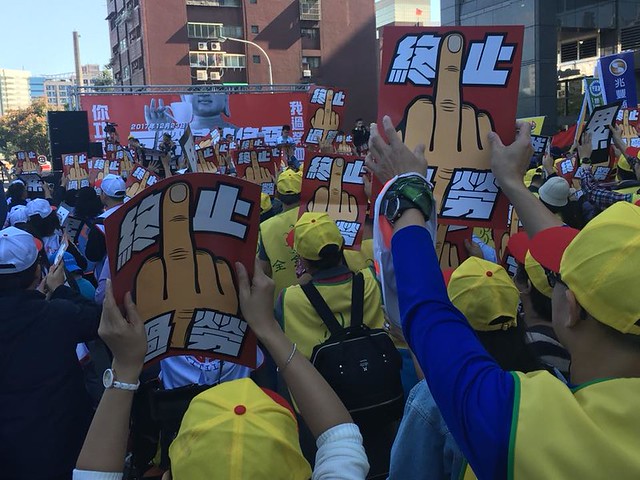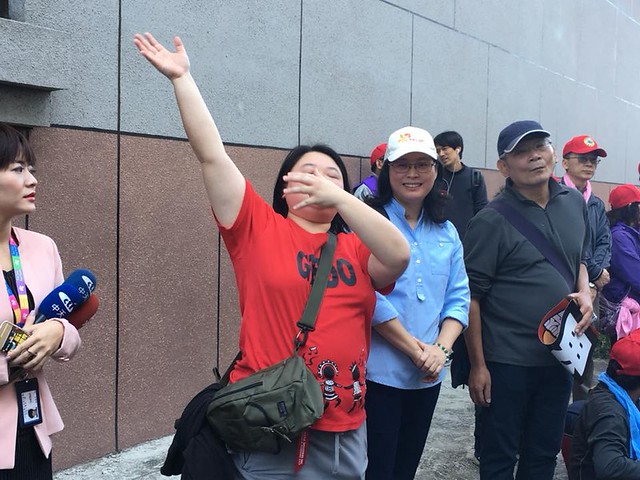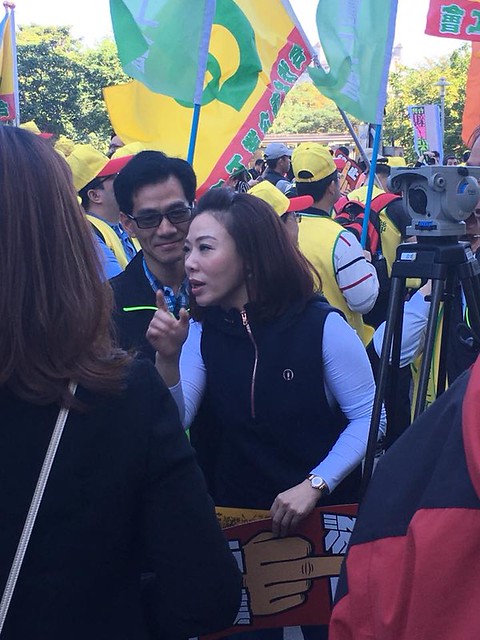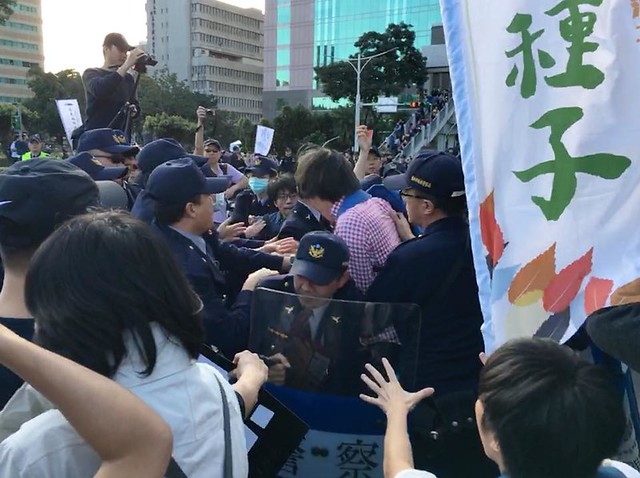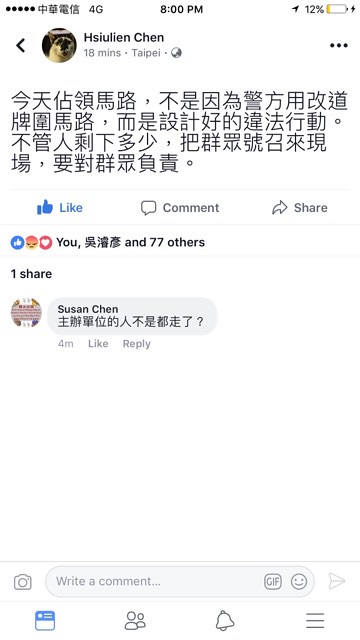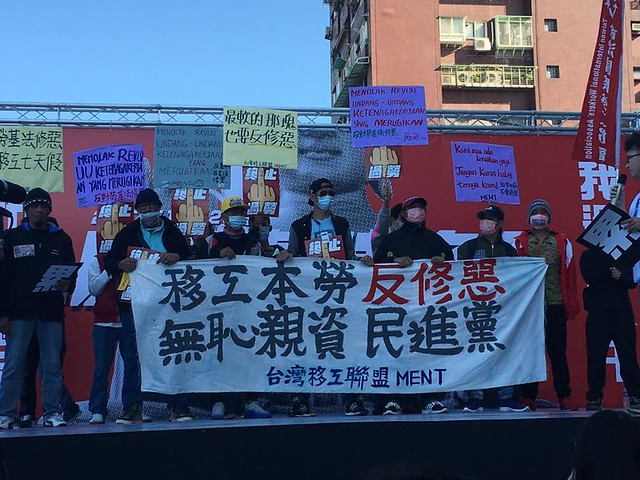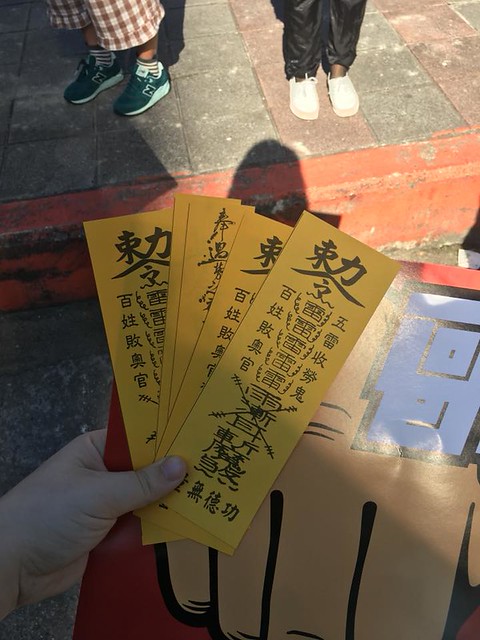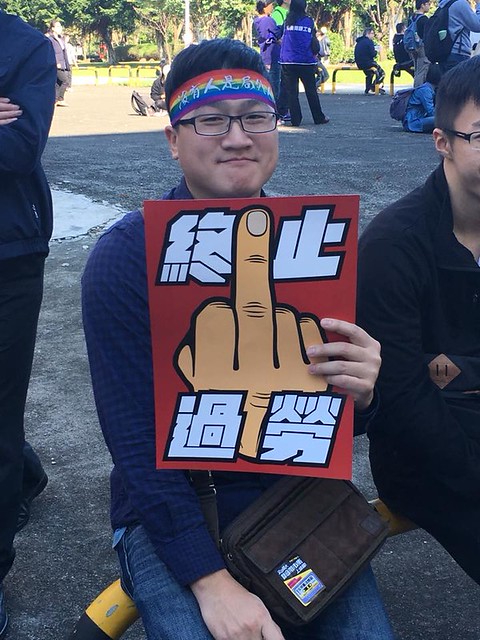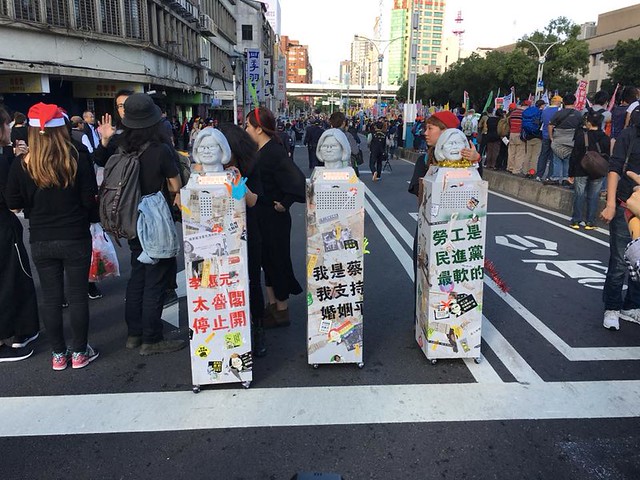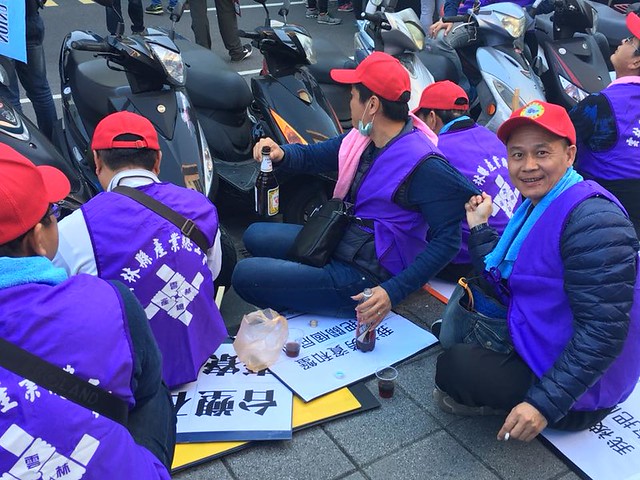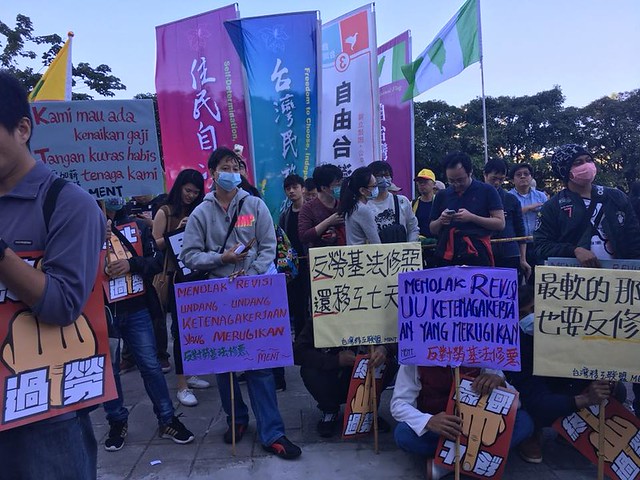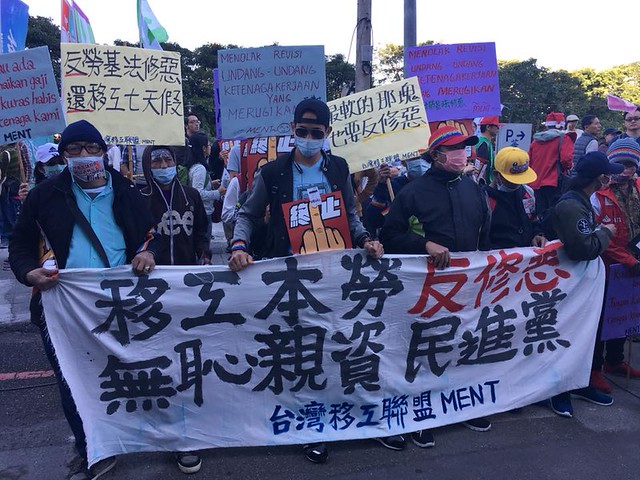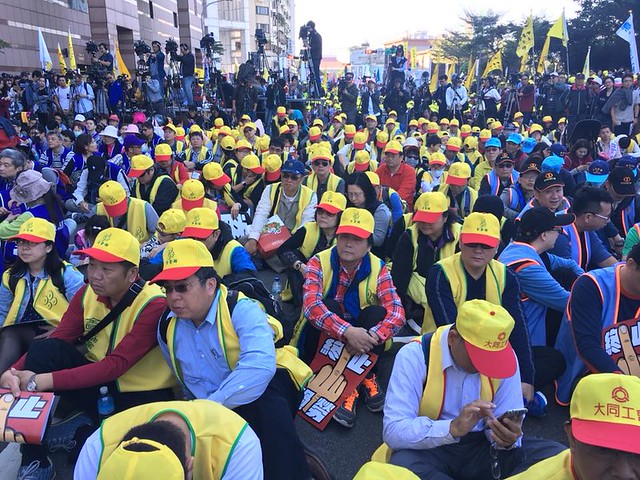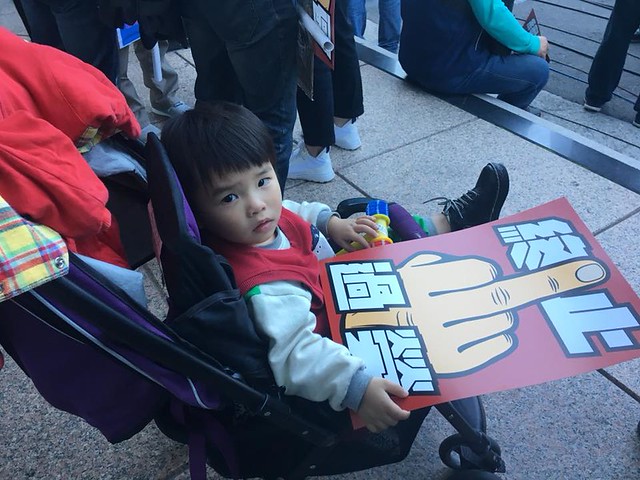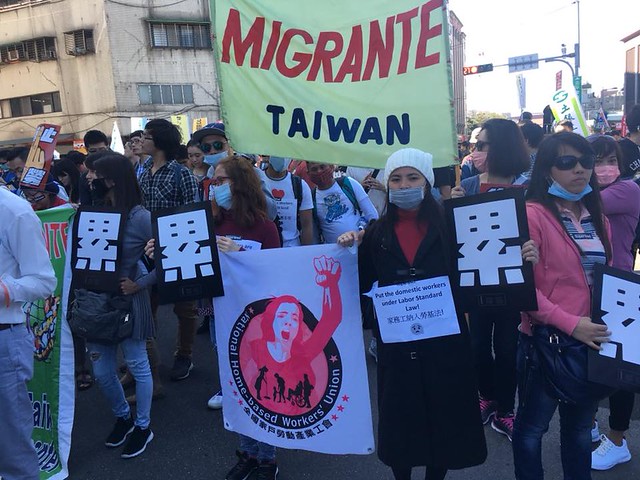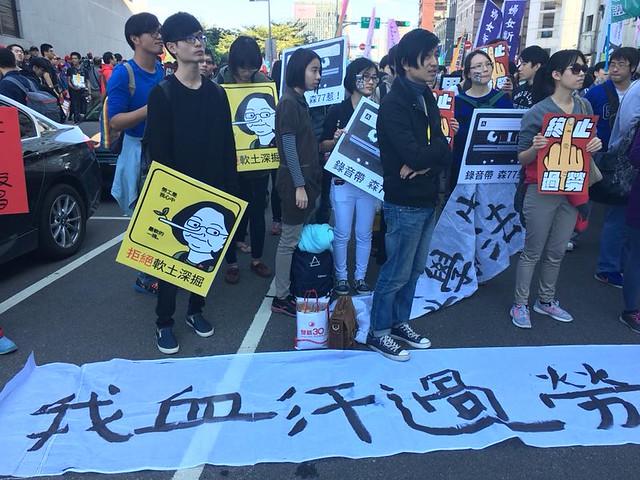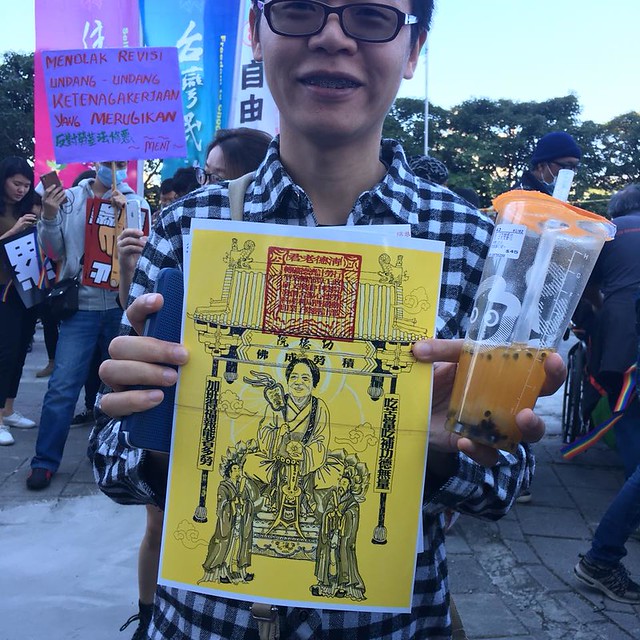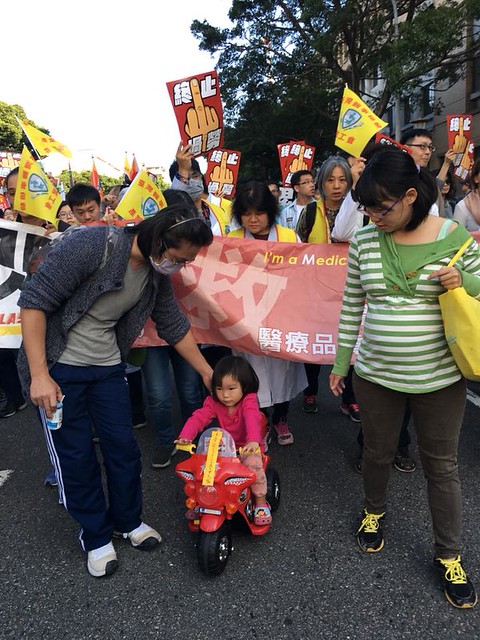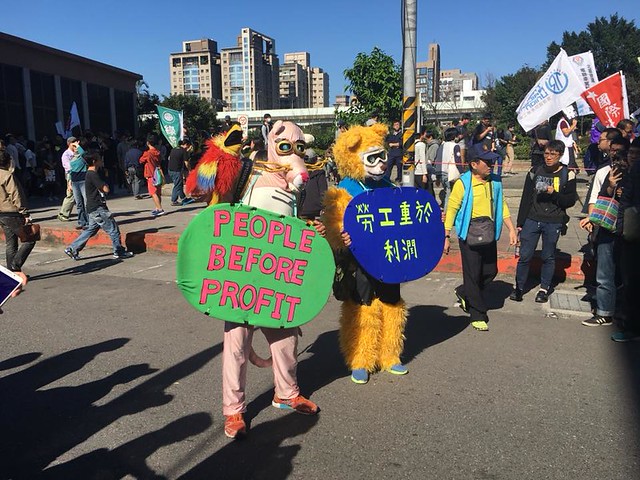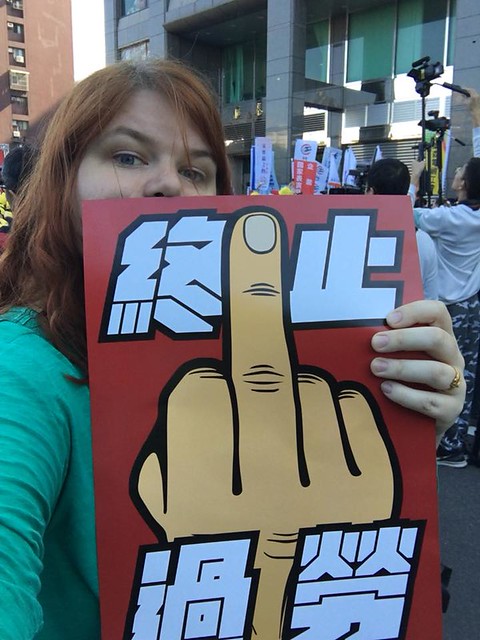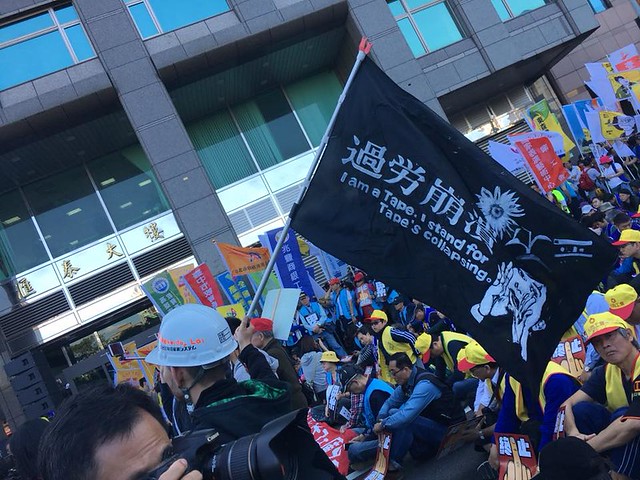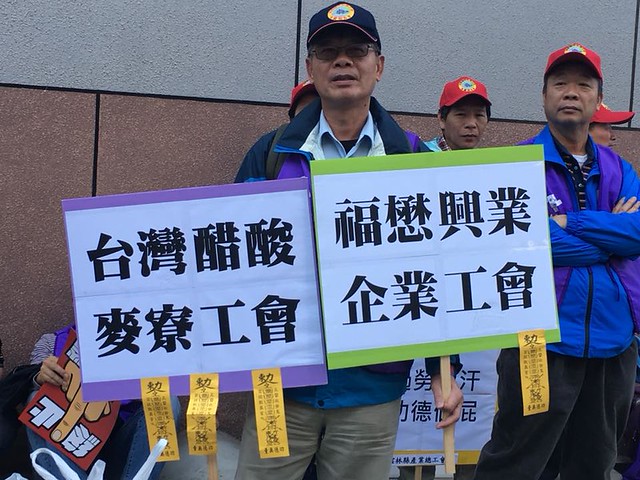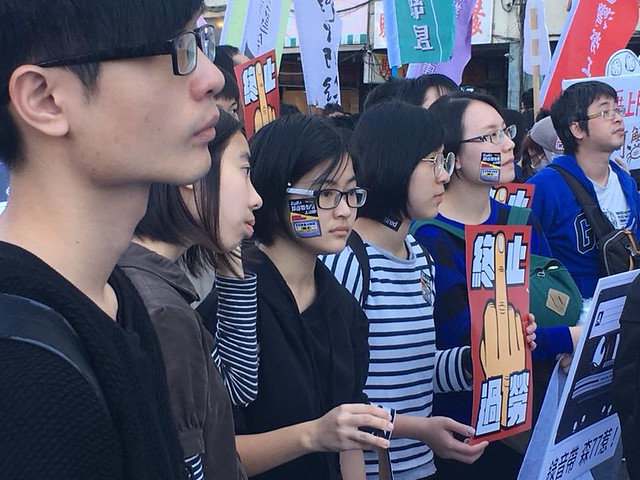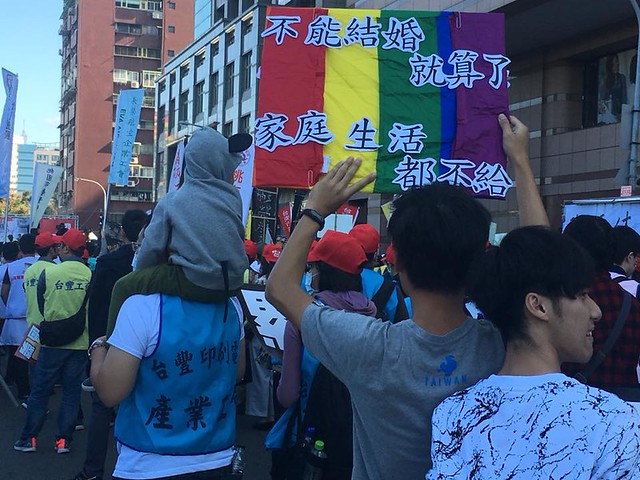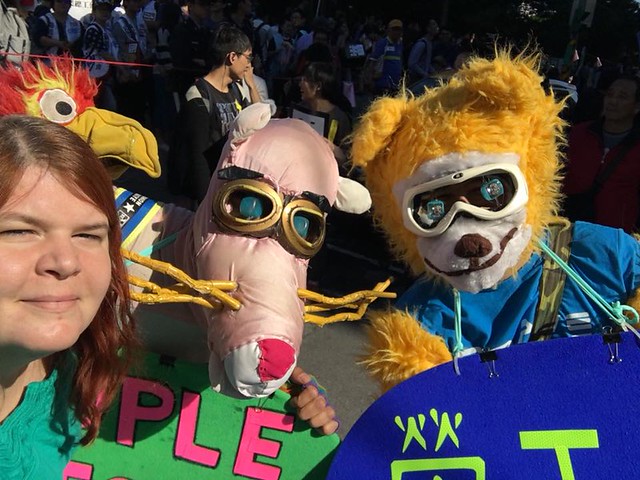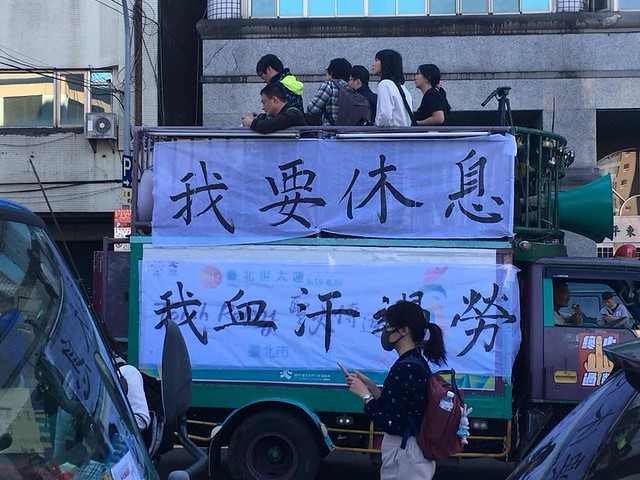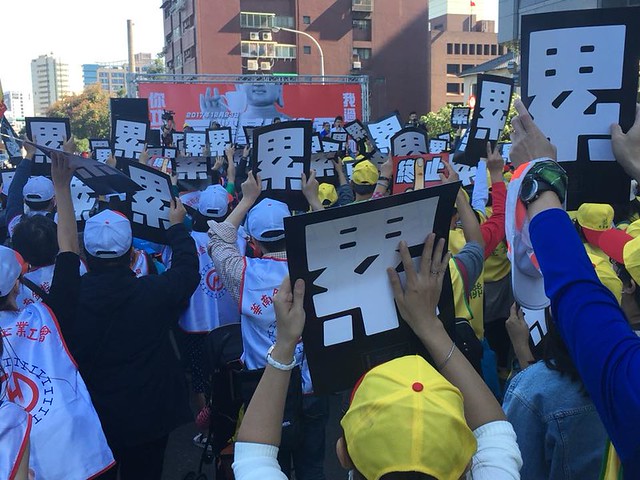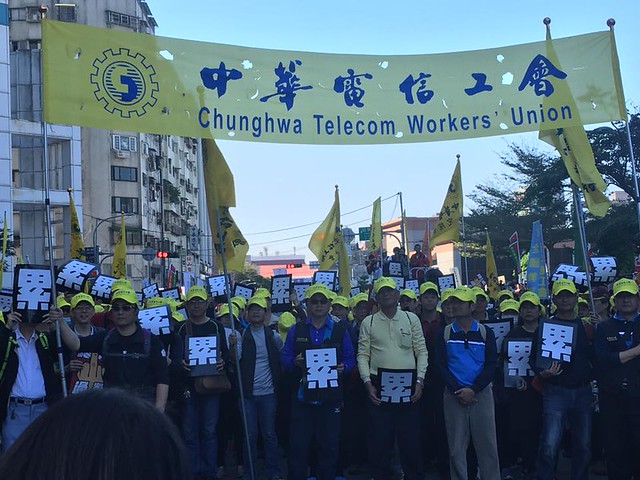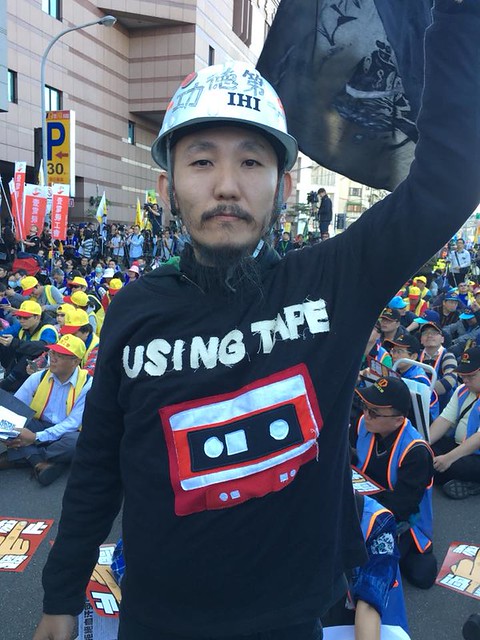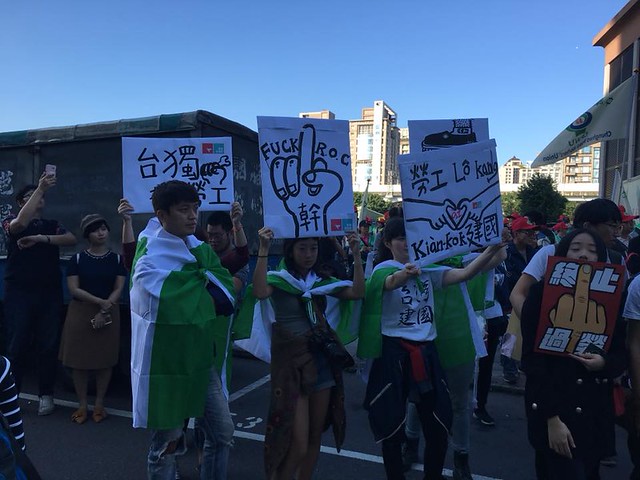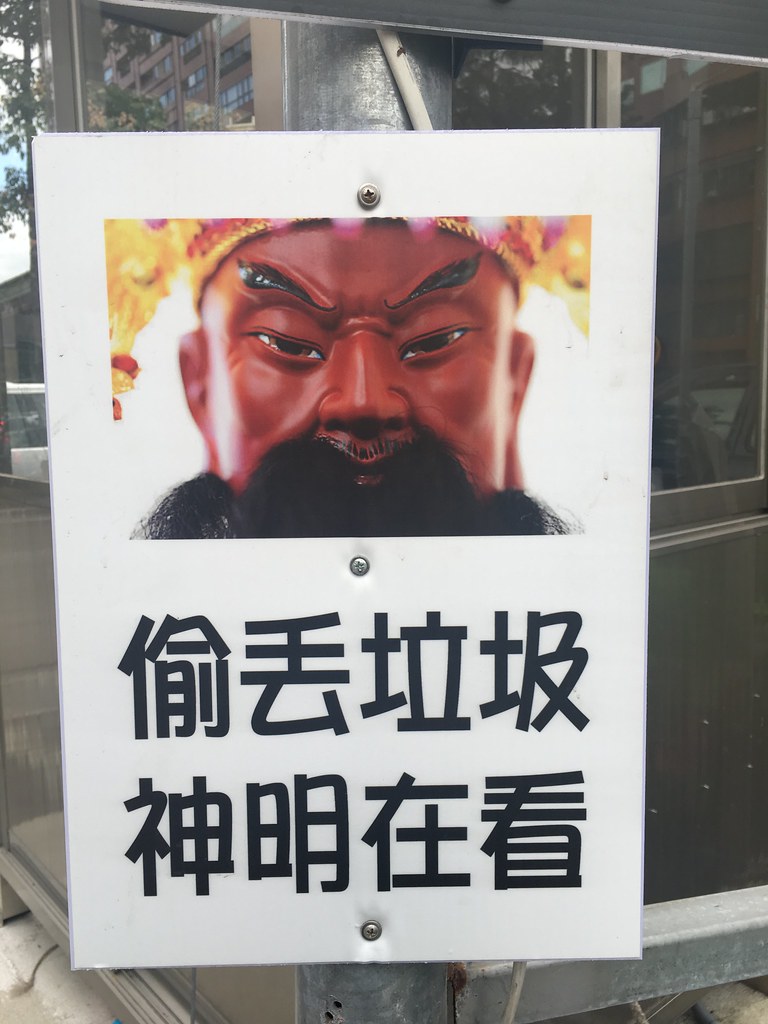The reason why is they want fair pay and reasonable hours.
"Why is brain drain such a problem in Taiwan?" these articles always ask.
It's because pay is too low and hours are too long.
"OMG China is benefiting from the brain drain!"
Well yeah, because even though the hours there are long and the work culture generally terrible, at least you're being paid better to bend over and take it. If they could earn a competitive wage in Taiwan they'd probably stay.
"How can we resolve the brain drain problem?"
This article could have been written in four words:
FAIR PAY, REASONABLE HOURS
It's not rocket science, jeez.
Well yeah, because even though the hours there are long and the work culture generally terrible, at least you're being paid better to bend over and take it. If they could earn a competitive wage in Taiwan they'd probably stay.
"How can we resolve the brain drain problem?"
This article could have been written in four words:
FAIR PAY, REASONABLE HOURS
It's not rocket science, jeez.
"Maybe we could solve it by attracting more foreigners?"
No.
Fair pay, reasonable hours. We are not your excuse or your get-out-of-jail (I hope literal, actual jail because some of these employers need to go to prison) free card to treat workers like garbage.
No.
Fair pay, reasonable hours. We are not your excuse or your get-out-of-jail (I hope literal, actual jail because some of these employers need to go to prison) free card to treat workers like garbage.
This article seems to think China is 'trying' to woo these talented young Taiwanese.
Maybe, but it hardly matters. It wouldn't work if Taiwan offered labor a fair shake. Most wouldn't choose to work in China if they could get - you guessed it - fair pay and reasonable hours in Taiwan. Bosses who aren't incompetent morons and a work culture that affords autonomy, a voice and a sense of purpose - maybe even the chance to grow and develop in what you do - wouldn't hurt either.
But most people would probably settle for fair pay and reasonable hours.
This guy who somehow became a professor (wonders never cease) is not only condescending but also wrong.
The cost of living has been rising yet wages have not, which directly affects purchasing power. The difference in pay in Taiwan doesn't reflect the cost of living accurately, at least not anymore. It has nothing to do with choice of career - a total misdirection - and he doesn't seem to go anywhere with his education data.
Basically, he totally misses that Taiwanese are leaving not only because they want fair pay for the hours they work, but also to work reasonable hours.
The cost of living has been rising yet wages have not, which directly affects purchasing power. The difference in pay in Taiwan doesn't reflect the cost of living accurately, at least not anymore. It has nothing to do with choice of career - a total misdirection - and he doesn't seem to go anywhere with his education data.
Basically, he totally misses that Taiwanese are leaving not only because they want fair pay for the hours they work, but also to work reasonable hours.
* * *
Nobody - at least nobody that I can find - is reporting on the basic facts:
How do you solve Taiwan's brain drain?
Fair pay and reasonable hours. It's not rocket science.
Nobody - at least nobody that I can find - is reporting on the basic facts:
How do you solve Taiwan's brain drain?
Fair pay and reasonable hours. It's not rocket science.
But working overtime helps Taiwanese earn more!
Sure, but that's because they're not earning enough now. Few people who earn enough money wish to work themselves to exhaustion. They're doing it because they need to.
OMG the low birth rate!
Yeah if people earned more they'd have more kids, anyway when they're working all the time there's no time to bone.
Again. Not rocket science.
Sure, but that's because they're not earning enough now. Few people who earn enough money wish to work themselves to exhaustion. They're doing it because they need to.
OMG the low birth rate!
Yeah if people earned more they'd have more kids, anyway when they're working all the time there's no time to bone.
Again. Not rocket science.
But why are they leaving???
LOW PAY AND UNREASONABLE HOURS
So how do we get them to stay??
FAIR PAY AND REASONABLE HOURS.
LOW PAY AND UNREASONABLE HOURS
So how do we get them to stay??
FAIR PAY AND REASONABLE HOURS.
Guys. Seriously. Come on. Quit it with your nonsense, spinning webs of words around this very simple problem that literally a monkey could solve.
Most people don't want to leave their home country. Some do - they tend to be the adventurers or those looking for something different. Many return, a few don't. That's OK. Some find the lifestyle abroad suits them better, as I did. But most are happy to stay in the country where they are from if that country is more or less a comfortable/good/safe/friendly place to live. Their friends, family and community are here. They wouldn't leave if they could get good work for fair pay at reasonable hours.
So Jesus Monkey-Juggling Christ, if you want to keep them offer them fair pay and reasonable hours.
I'm not even joking about the monkey. If you devised a test where on one side they had to run on a treadmill for like 12 hours (a typical Taiwanese work day) for ten peanuts, and on the other, they had to run on a treadmill for 8 hours for 20 peanuts, the monkey is smart enough to choose the better option.
Like...seriously. How is this hard?
Most people don't want to leave their home country. Some do - they tend to be the adventurers or those looking for something different. Many return, a few don't. That's OK. Some find the lifestyle abroad suits them better, as I did. But most are happy to stay in the country where they are from if that country is more or less a comfortable/good/safe/friendly place to live. Their friends, family and community are here. They wouldn't leave if they could get good work for fair pay at reasonable hours.
So Jesus Monkey-Juggling Christ, if you want to keep them offer them fair pay and reasonable hours.
I'm not even joking about the monkey. If you devised a test where on one side they had to run on a treadmill for like 12 hours (a typical Taiwanese work day) for ten peanuts, and on the other, they had to run on a treadmill for 8 hours for 20 peanuts, the monkey is smart enough to choose the better option.
Like...seriously. How is this hard?

